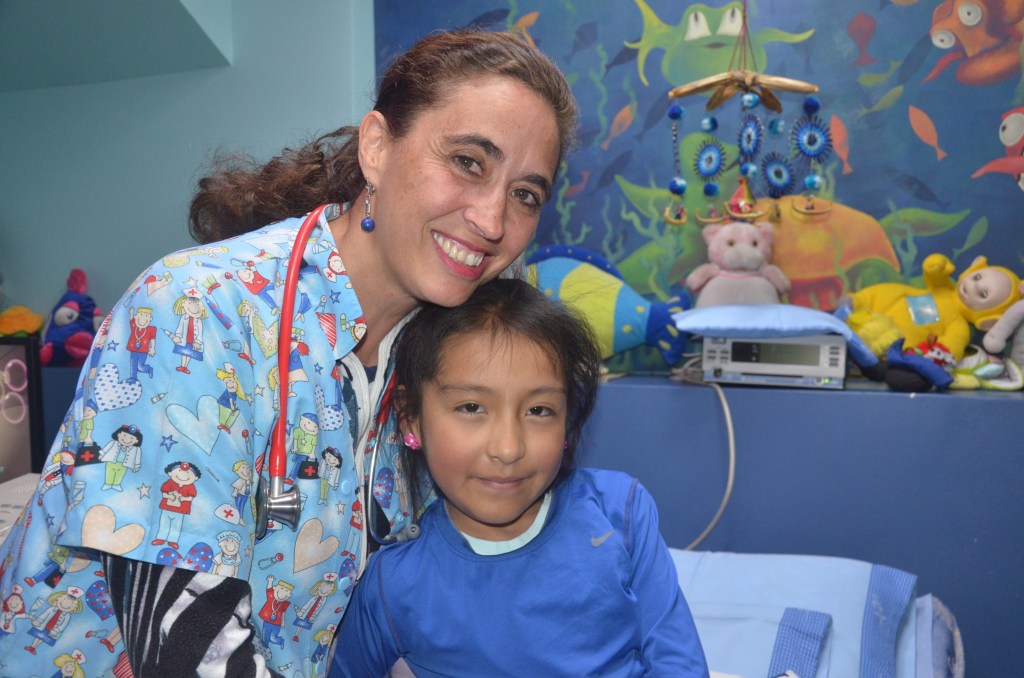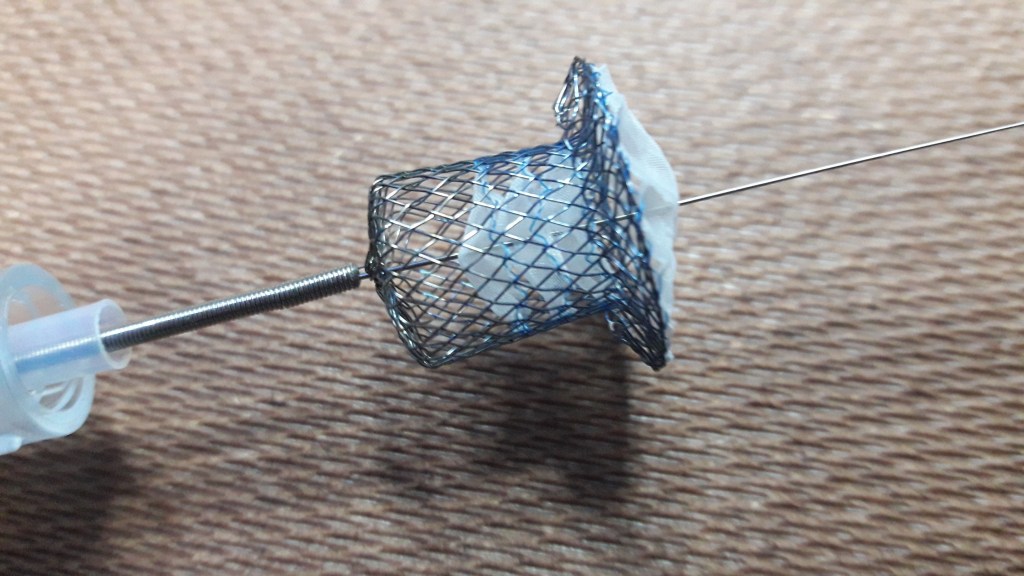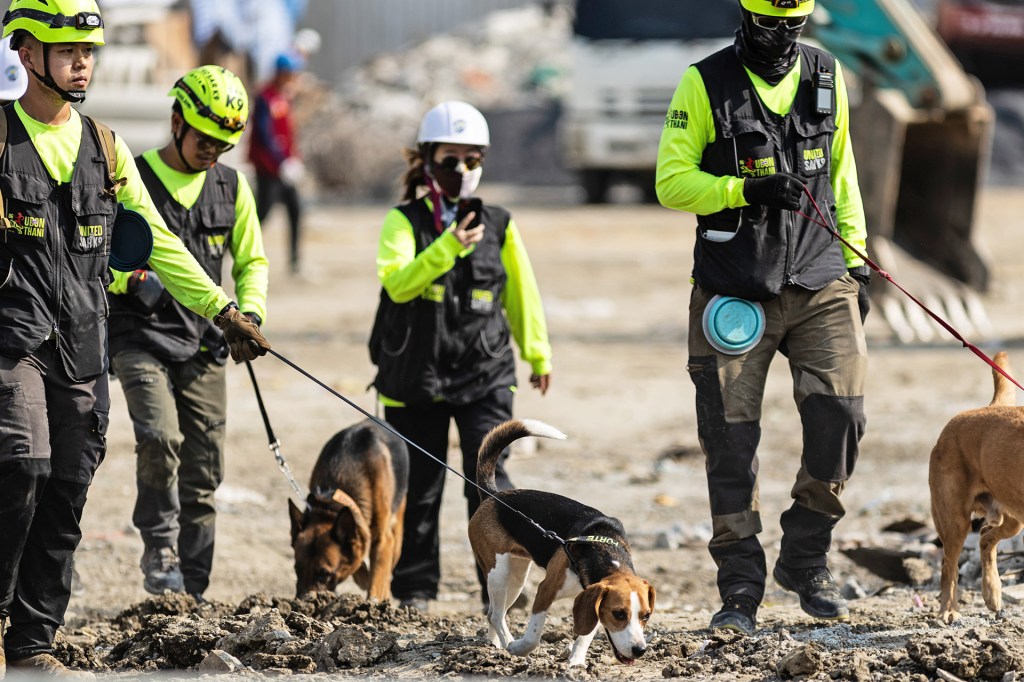Knitting Hearts

Bolivia is a poor country in South America. It is not considered a leader in medicine. But a doctor is changing that.
Dr. Franz Freudenthal is a heart doctor. He is also an inventor. One of his creations helps his work as a doctor. The Nit-Occlud treats atrial septal defect (ASD), known as a “hole in the heart.” It is made by knitting a string of metal into a mesh. The device is implanted
implant
 BEATE ZOELLNER/GETTY IMAGES
to put something in a person's body, usually by surgery
(verb)
Rachel had a microchip implanted in her dog Weezer so she could track him the next time he ran away.
through a blood vessel. Once inside the heart, it expands. It blocks the hole.
BEATE ZOELLNER/GETTY IMAGES
to put something in a person's body, usually by surgery
(verb)
Rachel had a microchip implanted in her dog Weezer so she could track him the next time he ran away.
through a blood vessel. Once inside the heart, it expands. It blocks the hole.
At High Risk
Doctors don’t always know what causes ASD. But high altitudes
altitude
 STUDIO 504/GETTY IMAGES
the height of something compared to the level of the sea
(noun)
The airplane can reach altitudes of 39,000 feet.
could play a role.
STUDIO 504/GETTY IMAGES
the height of something compared to the level of the sea
(noun)
The airplane can reach altitudes of 39,000 feet.
could play a role.
The city of La Paz is almost 12,000 feet above sea level. This altitude can cause illnesses. Freudenthal says children born in La Paz are more likely to have a heart defect. “The baby does not grow” properly, Freudenthal told TFK. ASD can make it hard for a child to breathe.
Freudenthal’s Nit-Occlud device is giving his patients hope. “Now there is a solution,” he says. “And it is such a simple solution.”

Before it is implanted, the Nit-Occlud looks like a tiny top hat. Once inside the body, it expands into a circular shape.
GEORG ISMAR—PICTURE-ALLIANCE/DPA/AP IMAGESThe Perfect Design
Freudenthal says medicine and traditional Bolivian culture are working together to save lives.
The Aymara people have lived in Bolivia for hundreds of years. Their folktales tell how their god Tunupa taught them to weave and knit. Freudenthal grew up in Bolivia. As a child, he saw Aymara women weaving and knitting. Their detailed work would later play a big part in creating the Nit-Occlud.
How so? Freudenthal wanted to make a device that was easy to implant. He came up with a knit design. It was so small it had to be made by hand. Freudenthal remembered the Aymara women. He needed help from their expert fingers. So he asked Aymara women to work with him. Together, they made the Nit-Occlud a reality.
A team of Aymara women now knits the devices by hand. They work in a children’s clinic founded by Freudenthal and his wife, Dr. Alexandra Heath. “There is only so much I can do after I implant the device—it must work on its own,” he said. “In some regard, these women are as much a part of the surgery as I am.”












